'My baby isn't dead, she was stolen from me'
- Published
The Sarkars were told their baby had a heart problem
More than two years after doctors at a clinic in the eastern Indian city of Kolkata told her that her newborn had died, Kanon Sarkar believes that her baby girl is still alive.
On a summer evening in July 2014, the clinic handed her family the corpse of an infant, tightly wrapped in white cloth, and told them to go home.
The grief-stricken family returned to their village, some 100km (60 miles) from the city, and following Hindu tradition, immersed the infant's body in a river skirting the village. A year later, the parents burned the death certificate "to forget the bad memories".
"Now I am convinced that my newborn baby was stolen and sold. And I was given somebody else's dead baby," Mrs Sarkar, 27, told the BBC, welling up, outside her sparse home in West Bengal's North 24 Parganas district.
Babies in boxes
Her suspicions were aroused when news of a baby trafficking racket emerged in mid-November. Detectives belonging to the Criminal Investigation Department (CID) raided a grubby nursing home in Baduria, 80km from Kolkata, and rescued three newborns from cardboard biscuit boxes. The babies were meant to be sent to a Christian charity in the neighbourhood, from where they would be sold to childless couples.
Days later, there were more appalling developments. Ten more babies - all female, aged between one and nine months - were rescued from a home for the mentally ill near Kolkata. The babies were wrapped in rags and visibly undernourished. Some were suffering from bed sores, and at least one was vomiting milk, Jahanara Bibi, the caretaker of the home, told us.
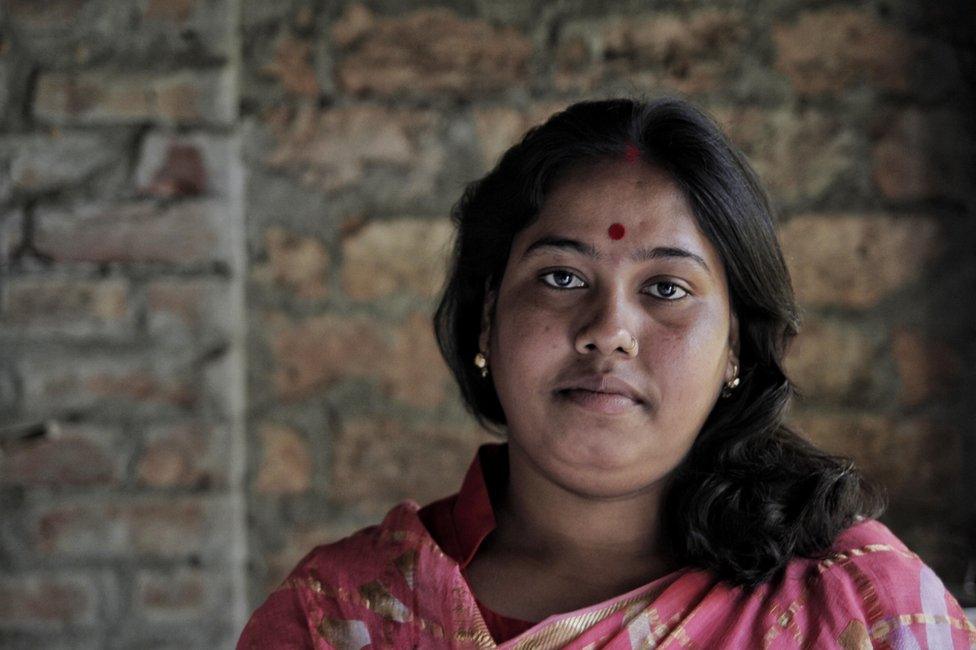
Kanon Sarkar was told her baby had a heart problem
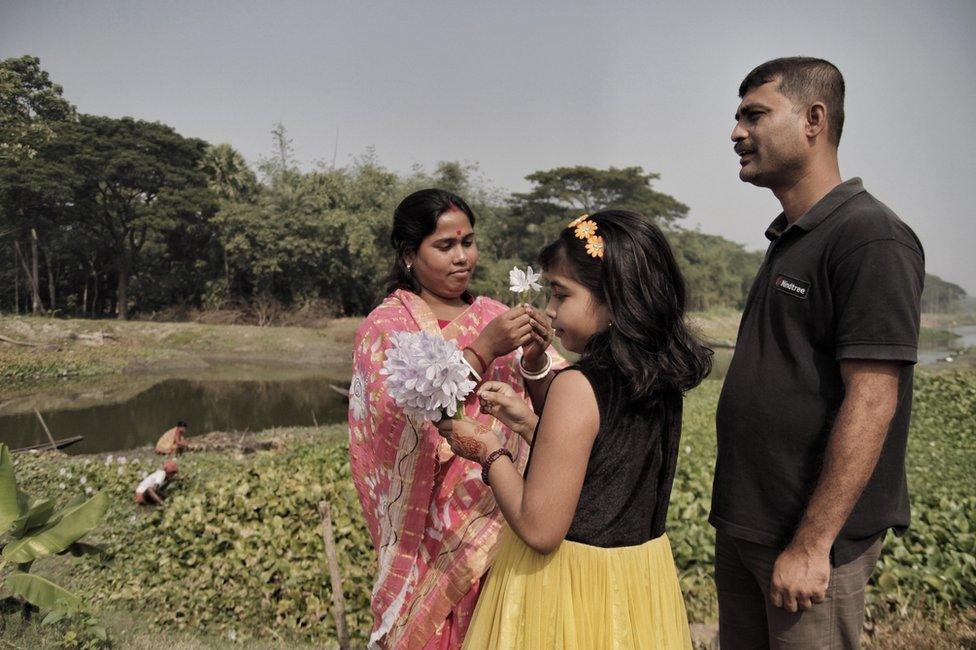
The Sarkars now suspect that their baby girl was trafficked
The dark story took a chilling turn when two skeletons of infants were exhumed from small graves when detectives raided the Christian charity, which doubled as a free clinic and school for children. The detectives believe the infants died after falling sick in transit and were buried in a garden and a field. "There could be more graves here, who knows," said Bijon Ghosh, a local policeman.
The police soon announced that they had unearthed a baby-trafficking racket. "It appears to be pretty big operation. We suspect 45-50 babies may have been trafficked and sold to childless couples," Rajesh Kumar, chief of the Criminal Investigation Department (CID), told me.
Thirteen babies - 10 girls and three boys - have been rescued, three nursing homes shut down and 20 people arrested so far. They include nurses, midwives, middlemen, clerks who allegedly faked adoption certificates and the people who ran the nursing home that was raided, the charity and the home for the mentally ill.
'Heart problem'
Also arrested were three doctors, one of whom bore the same name as the one tasked with Mrs Sarkar's delivery. He had accompanied her and the baby to a nursing home in Kolkata on the fateful day after telling her that the newborn needed specialised treatment for an unexplained heart condition.
Mrs Sarkar's husband, Ashish, heard the news about the doctor's arrest on TV news and called up the toll free police number in Kolkata. They asked him to call the CID. There, they put the line through to a detective, who asked him to rush to the city and identify the doctor.
"So I went to Kolkata and identified the doctor. When I confronted him in front of the police, he said he had only accompanied us to the nursing home in Kolkata so that our baby could get better treatment," Mr Sarkar, 37, a construction contractor, told us.
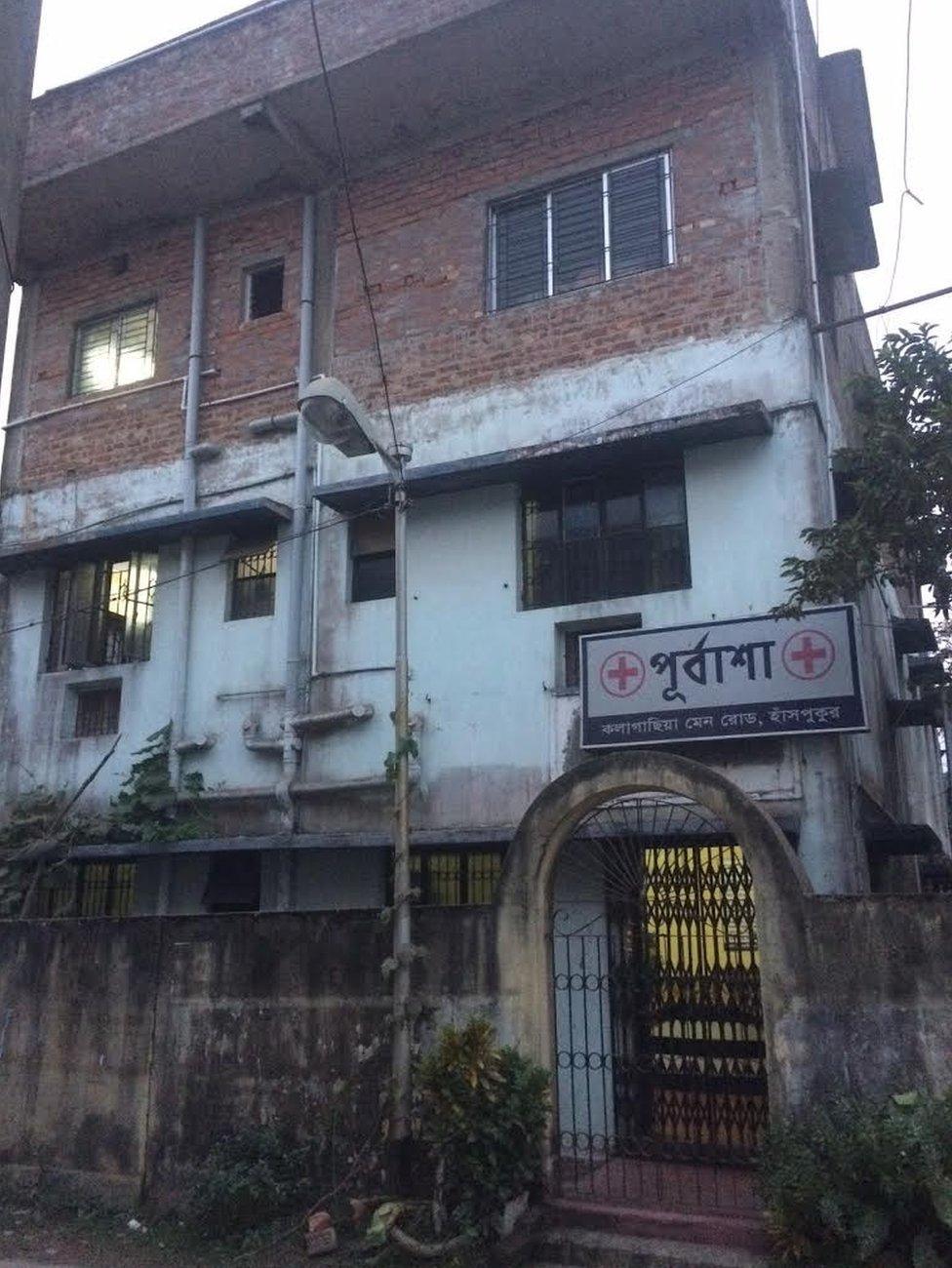
Ten babies were rescued from this home for the mentally ill near Kolkata
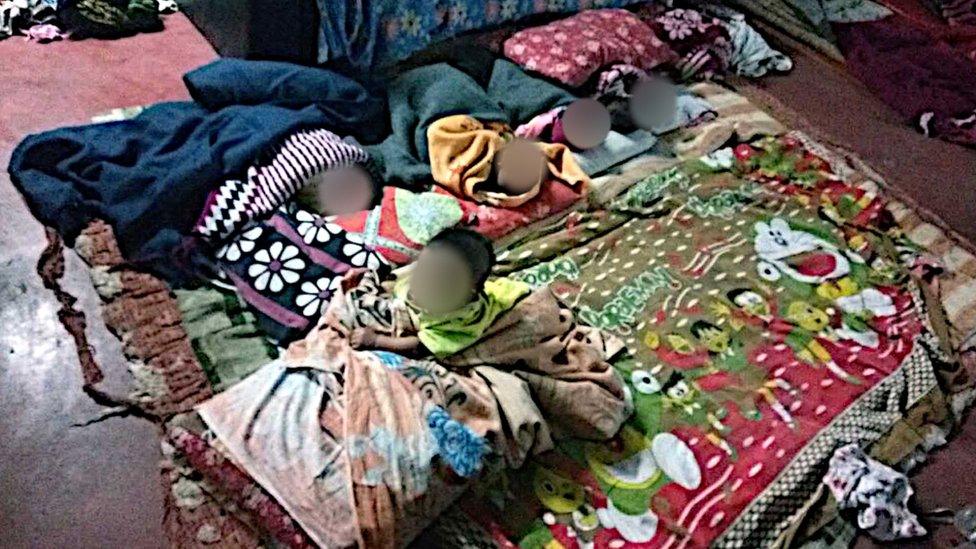
The babies were wrapped in rags and some had rashes
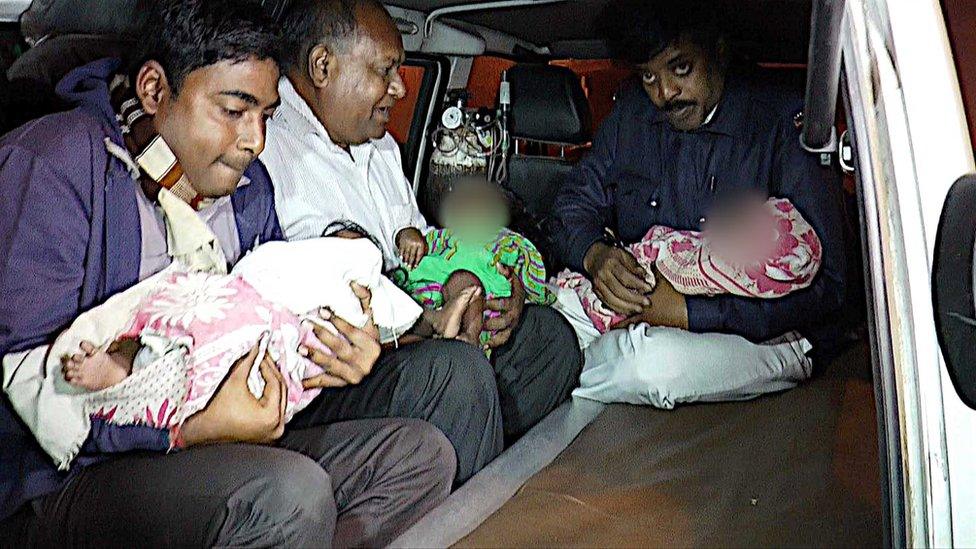
The babies are now recovering at a hospital in Kolkata
The so-called doctor had been referred to the Sarkars by a relative, whose children he had delivered. Although he had no formal qualifications, he had been carrying out normal deliveries at his home for as cheaply as 3,500 rupees ($51; £40). The Sarkars called him their "family doctor". Five ultrasound scans had confirmed that the foetus was in good health and developing well.
When Mrs Sarkar had her labour pains early on a July morning in 2014, she had been taken to him. He had given her an injection, and taken her over bumpy village roads to a nursing home, some 30km away, for the delivery. Four hours later, she gave birth to a baby girl.
Things began going "suspiciously" wrong after that, the Sarkars recollect.
Intriguing
A man at the nursing home who described himself as a paediatrician told the family, "without conducting any tests", that the baby had a "hole in the heart and other abnormalities".
He said the infant needed to be urgently rushed to a clinic in Kolkata for treatment. The "family doctor", he insisted, would accompany the mother and the baby.
Mrs Sarkar said she cradled her newborn the long journey through a gridlocked, narrow highway to the city. "I was feeding her, she was smiling, crying, flailing her arms, behaving like a normal baby. I couldn't make out how they were telling me that she was sick."
What happened in the clinic in Kolkata was even more intriguing.
First, a paediatrician appeared, checked the baby and told the parents "there was nothing wrong" with her.
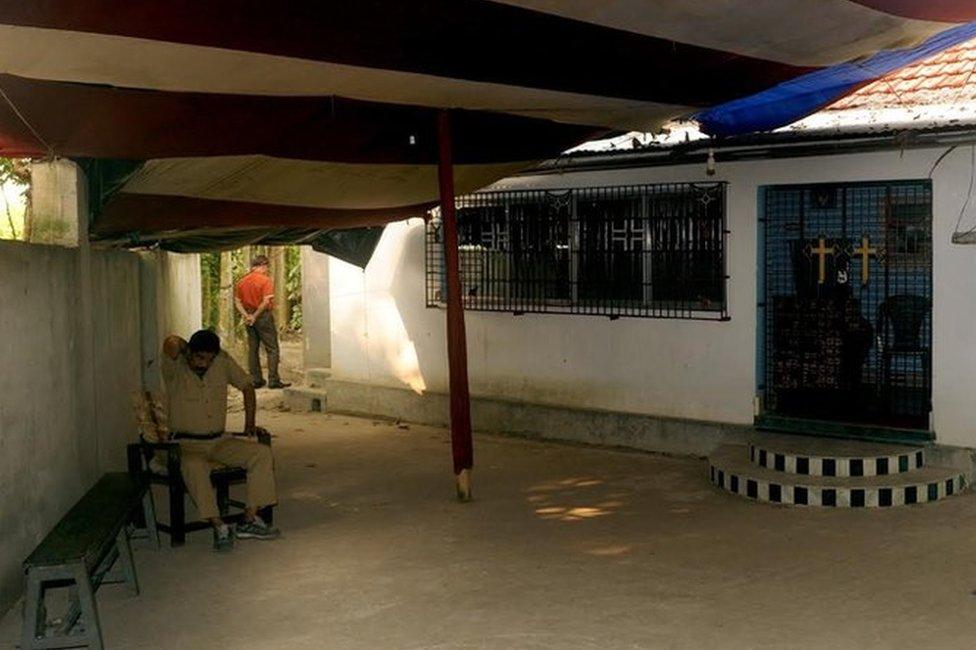
Police believe babies were sent to a Christian charity to be sold to childless couples
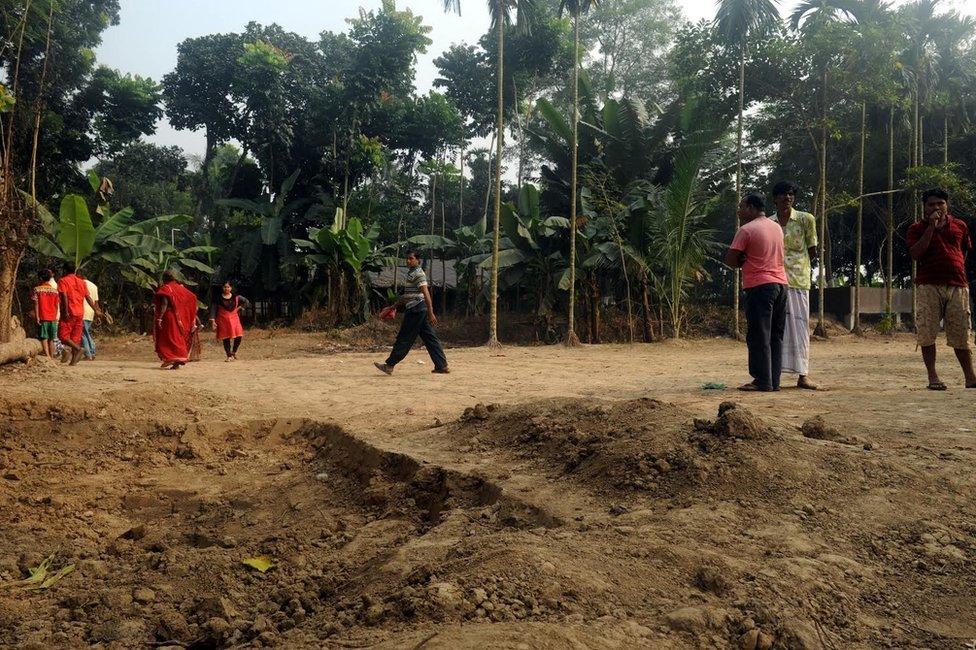
Graves containing two infant skeletons were found in a field
Then the "family doctor" went inside and brought out a friend who overturned the diagnosis and told the family that the infant needed to be admitted for tests.
The family left the clinic before midnight, leaving the baby and mother behind. The next morning, Mr Sarkar received a call from the clinic with the news that their baby had died. That evening, they were handed a corpse and asked to go home.
"The dead baby appeared to be longer than my sister's girl, and looked bloated," says Ujjal Bala, Mrs Sarkar's brother.
Looking back, the family believes that the doctors need to answer several questions.
Unanswered questions
"They told my husband that my baby died half an hour after he left the hospital. Why did they wait until the next morning to inform him? Why did the first doctor at the Kolkata clinic tell us that she was fine? Why didn't they conduct any tests on my baby when they kept telling us she had a heart problem? How was the baby healthy on the journey if she was so sick?" wonders Mrs Sarkar.
These are all good questions, say the detectives investigating the case.
They have described the "family doctor" as the alleged mastermind of the racket and are investigating whether the Sarkars were given somebody else's dead baby, while their baby was sold.
"The doctor is definitely under the scanner," Mr Kumar of the CID said. "We have received one more similar complaint against him from another couple. It is all very fishy."
The latest episode of baby trafficking exposes many serious issues in modern India.
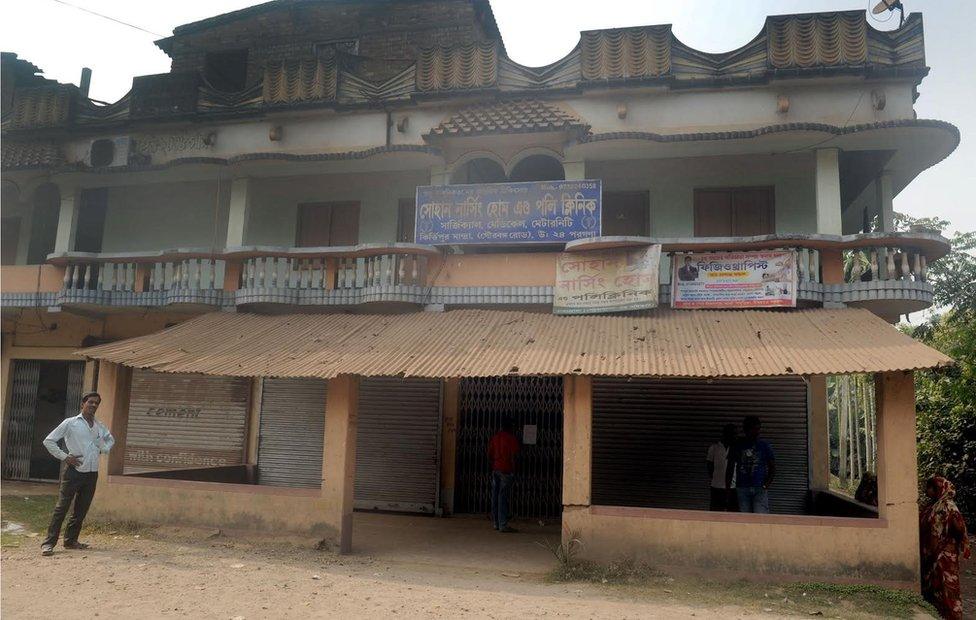
The illegal deliveries were carried out at this nursing home, police say
In a country with tough adoption laws and a long waiting list for those who want to adopt - there were only 3,011 legal adoptions in the country during the 2015-2016 financial year against a waiting list of 12,000 couples - desperate, childless would-be parents buy babies from a countrywide illegal market.
The racket also illuminates how abject poverty forces poor mothers to sell their babies, and how how unwed mothers are duped by touts and shady clinics to deliver their babies, and give them away for a pittance.
It reveals the familiarly odious gender and colour biases. Fair-skinned baby boys fetched the highest prices - up to 700,000 rupees ($10,257; £8,070) according to police - and dark-skinned girls the lowest. All the 10 babies rescued from the home in Kolkata were dark-skinned girls.
And the mushrooming of unlicensed nursing homes and lack of adequate public health services means that unscrupulous clinics and doctors can easily prey on the poor.
Back in the village, Mrs Sarkar believes she will be reunited with her baby.
"My nine-year-old daughter Ananya has begun asking me: 'When will my little sister come home?' I want an answer too."